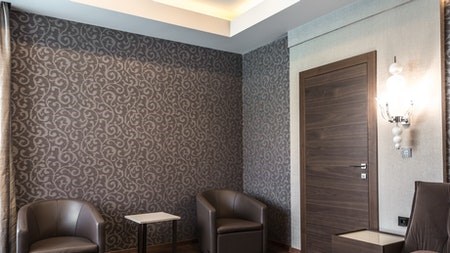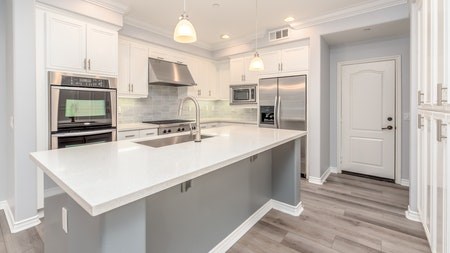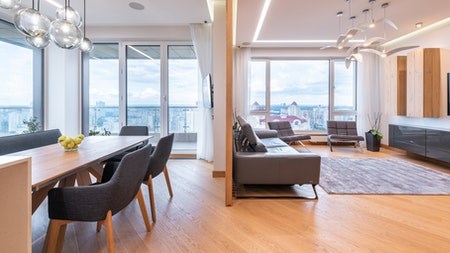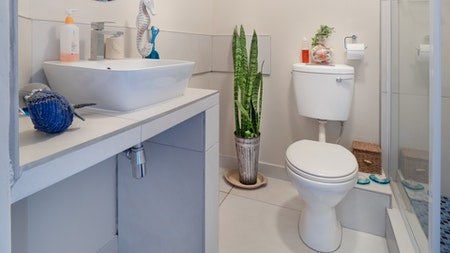Lighting supply shops are filled with bright lights, dim lights, hanging lights, and wall lights as well as chandeliers and LED lights. With such a wide range to choose from, selecting the right lighting for the different rooms in your home can be a complicated exercise.
Lighting experts advise that you need to choose lights that are functional, with the correct illumination levels, and in designs that complement the décor in each room. For instance, an outsize crystal chandelier would look out of place in a bathroom but is ideal for lighting up a staircase.
Lighting types
There are three basic types of lighting - ambient, task, and accent lighting.
Ambient lighting refers to the primary source of light in a room, which usually consists of overhead fixtures or recessed lighting.
Task lighting provides illumination for certain activities, like reading or doing make-up in front of a mirror. Task lights brighten a small area of the room and come in various designs. They can be wall-mounted, stand on a desk, or be incorporated into a mirror.
Accent lights highlight items in the home, such as paintings or objects, and can be simple and elegant, or luxurious.
Light styles
Different light styles are suited to particular locations and functions.
Sconces are wall-mounted lights that can be built into the wall, or plugged into a wall socket. Wall sconces usually come in pairs, for use on either side of a mirror or a fireplace, for instance. Swing-arm sconces are usually mounted singly as accent lights to showcase artworks or other items.
Flush-mounted and semi-flush mounted lights are usually installed in the ceiling, brightening the room while allowing extra walking space.
Pendant lights hang low from the ceiling by a cord or chain. They provide task lighting above a dining room table or a kitchen island, for example.
Chandeliers are suspended from the ceiling and can be functional or decorative depending on where they are placed.
Lamps are task lights, which are inexpensive and easy to move around.
LED lights come in all shapes and sizes, including ceiling-mounted downlights for ambient lighting and floor-mounted uplighters that illuminate otherwise dark corridors or highlight artworks.
Lighting for every room
Each room in the home has its own lighting needs.
The entrance should be friendly and inviting. A centrally-mounted chandelier works well with high ceilings, but almost any light fitting that creates a warm tone will do the job.
The living room is meant for relaxation and entertainment. You’ll want bright ambient light with dimmer switches for setting the desired mood – ceiling-mounted downlights work well - supplemented with floor lamps, table lamps, and sconces.
The dining room needs lighting bright enough for eating and chatting comfortably. A chandelier or a set of pendant lights are ideal for this but remember not to hang them too low.
The kitchen usually needs different lighting schemes for the various areas of the room. For example, you’ll need bright lights over the preparation area, with dimmer lighting in areas that are not used as often. Pendant lights are functional, with small spotlights for highlighting dark corners, which can be switched off when not in use.
Bedrooms need warm ambient lighting with a dimmer switch, like bedside table lamps and task lights for reading.
Bathrooms need to be well-lit. Sconces and bright LED lights work well above mirrors which are key focal points.
These tips should enable you to make sense of the selection at your lighting supply shop and light your home to the best effect.




